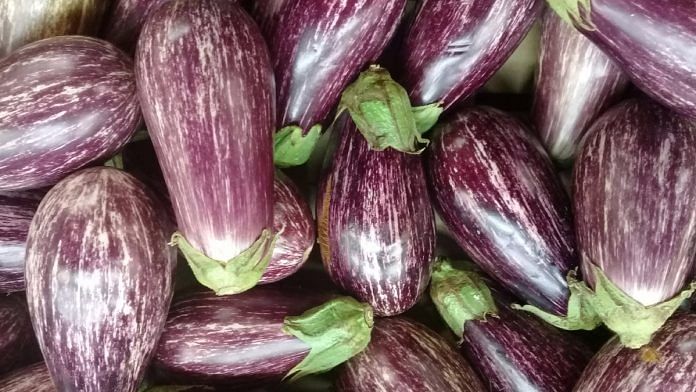New Delhi: The Alliance for Agri Innovation (AAI), a leading agri-tech industry body, has written to the central government and various states to allow field trials of Bt brinjal, a genetically-modified (GM) crop that was banned in 2010 following concerns raised about public health and biodiversity.
In a statement released Friday, the AAI said field trial was the only way to ensure safety of crops. “…blocking such trials amounts to blocking national development,” it said.
AAI’s letter has been sent to the agriculture ministry and chief ministers of Madhya Pradesh, Karnataka, Bihar, Chhattisgarh, Jharkhand, Tamil Nadu, Odisha and West Bengal.
The AAI statement also mentions how a 2019 peer-reviewed study had found that “net returns to farmers from Bt brinjal crop averaged $2151/ha (Rs 1.61 lakh/ha) compared to $357/ha (Rs 26,768/ha) from non-Bt brinjal crop”.
In India, Bt brinjal was cleared for commercial cultivation by the Genetic Engineering Appraisal Committee (GEAC) in 2009 but it was placed under an “indefinite moratorium” the following year by then minister of state for environment, Jairam Ramesh.
Several farmers from various states, including Maharashtra and Haryana, were found to be openly flouting the GM crop ban last year and sow Bt brinjal.
The crop has been commercially grown in Bangladesh since 2014 — the first South Asian country to do so.
Also read: Why farmers are still having to protest for their right to sow GM seeds, even in a pandemic
‘Can save income of farmers’
Brinjal is an extremely pest-prone crop, and highly susceptible to the fruit and shoot borer (FSB) pest.
To reduce loss of yield, farmers often end up spraying this crop multiple times. A report from Bangladesh had earlier noted that “protein in Bt brinjal…disrupts the digestive systems of certain pests, causing them to die within three days of ingestion”.
It had also stated that advantages of using Bt brinjal over non-Bt brinjal were lower pest infection, higher yields, 56 per cent reduction in environmental toxicity and fewer complaints about “symptoms consistent with pesticide exposure”.
Ram Kaundinya, director general of AAI, said in the statement, “The deadly FSB is a menace for farmers and its caterpillar also finds its way into our homes through infected brinjals. By controlling this with Bt technology, we can save farmers’ income, reduce pesticide load on the environment and provide pesticide- and insect-free brinjals to consumers.”
AAI head Paresh Verma added, “Development of indigenous technology is in line with the Atmanirbhar Bharat mission launched by Prime Minister Narendra Modi. Delays due to a paralysis in the decision-making process by the central and state governments have essentially stalled the progress in research to develop new technologies.”
The AAI statement also noted how several studies and analyses into GM cultivation over the past 23 years have found no evidence of “adverse health effects on humans or animals”.
Also read: Now, Bangladesh set to steal march over India with GM rice that fights malnutrition




We need to understand that people ingest dangerous amounts of pesticides and herbicides through GM foods. The pests can gain immunity to GM crops very soon. This will improve self sufficiency in agriculture for India
Thank you for reporting. We need to understand that people ingest dangerous amounts of pesticides and herbicides through GM foods. The pests can gain immunity to GM crops very soon. This will improve self sufficiency in agriculture for India
Thank you for this. Hope ThePrint continues to cover such news, and encourages the reporter to find more such news.